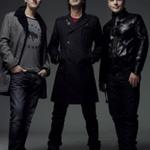
Soda Stereo Tour Dates and Upcoming Concerts
Welcome to the official artist page for Soda Stereo – your premier destination for
the latest concert tickets, tour announcements, and exclusive shows near you. Dive into
the music, explore the artist’s reviews and photos, and never miss another concert
moment. Stay updated, stay connected, and be the first to grab tickets for an
unforgettable musical experience.
On tour
Yes
Followers
330,852
Concerts
See all upcoming events on Bandsintown and get tickets.
About Soda Stereo
Soda Stereo is an Argentine rock power trio formed in 1982 consisting of guitarist and vocalist Gustavo Cerati, bassist Zeta Bosio and drummer Charly Alberti. The band established what would become the template for many other popular Spanish-speaking pop and rock music groups: clever, often mysterious lyrics, pleasing musical arrangements and an elaborate and glamorous aesthetic image.
With the release of albums such as Signos, Doble Vida and Canción Animal, Soda Stereo became one of the most critically acclaimed Argentine rock bands, being the first one to tour through Latin America, and achieving a success that no other local rock band had achieved before.
In 1997, after a farewell tour through various countries and finally Argentina, they disbanded due to personal problems between the members and different artistic criteria. On September 20, Soda Stereo played their last show, in front of 75,000 people at the Estadio Monumental (or River Plate Stadium) in Buenos Aires.
On June 9, 2007, amid rumours about a reunion, a tour named "Me Verás Volver" was announced, which started on October 19 at the River Plate stadium.
Overview
Formed in Buenos Aires, Argentina in early 1980, Gustavo Cerati, Charly Alberti and Zeta Bosio released two demos and started to play regularly in a bar called "Bar Zero". After a few shows, a CBS producer decided to give the band a chance. In 1984, their eponymic debut album, Soda Stereo was released, produced by Federico Moura, lead singer of the band Virus. In October, 1984 they played at the Rock & Pop festival with INXS, Nina Hagen and Charly García.
Their second album, Nada Personal was released in 1985 and affirmed the popularity of the band with some instantaneous classics such as "Nada Personal" and "Cuando Pase el Temblor". The video of the single "Cuando Pase el Temblor" was nominated in the category "Finalist Video" on the 12° World Festival of Video and TV.
Released in 1986, Signos represented the breakthrough from Argentina to the rest of Latin America: this was the first Argentine rock album to be released on compact disc, although this version was released in 1988. Signos contained songs such as "Persiana Americana", "Signos" and "Profugos" that gave the band the possibility to conquer wider audiences. Soda Stereo embarked in an extensive tour through Latin America to promote the album, they gave 22 concerts in 17 cities. A live album called Ruido Blanco was released, it contained the songs recorded in the Signos supporting tour without the intention to be published.
After over a year recording new material, Doble Vida was released in 1988. The album, produced by David Bowie's guitarist Carlos Alomar, was recorded and mixed in New York. The first three songs of the album were released as singles, "Picnic en el 4B", "En la Ciudad de la Furia" and "Lo que Sangra (La Cúpula)". Languis was released as an EP in the next year, and contained only one new song, "Mundo de Quimeras".
It was their sixth album, Canción Animal, released in 1990 that represented the band's peak, the songs are among the band's strongest and most popular, the album contained the instant hit "De Música Ligera", the single "Un Millón de Años Luz", the exquisite "Té para Tres" and the anthem "(En) El Séptimo Día". Overall, the album is considered as the most consistent work by the band, along with Signos. On December 14, 1991 they played a concert in front of 250.000 people on the 9 de Julio Avenue.
In late 1992 Soda Stereo released Dynamo. This LP was Soda's most ignored, and most experimental work. The band presented the album in its entirety in a local talk-show, Fax. This was the first stereophonic TV transmission in Argentina. Shortly after the release, bassist Zeta Bosio suffered the loss of his son in a car accident which pushed the band to stop touring and promoting the album and go into a hiatus during which singer Gustavo Cerati started his solo career with his debut album Amor Amarillo.
Their last studio album, Sueño Stereo was released in 1995 after a few years of silence. Three singles became hits after being released, "Ella Usó mi Cabeza como un Revolver", "Paseando por Roma" and "Zoom". Sueño Stereo reached platinum disc after only 15 days of the release. MTV Unplugged's Comfort y Música Para Volar was released in 1996, and contained not only unplugged songs, it also contained outtakes.
On 1 May 1997, personal problems between the members and different artistic criteria led the band to announce its end and started the final tour on July 1997. Their last concert given on 20 September at the River Plate Stadium was recorded and released in two parts, El Último Concierto A and B.
Comeback
During 2007, after 10 years of their dissolution, rumours stated that Soda Stereo would tour South America before the end of the year. A reunion tour was finally announced on June 9, 2007 as the "Me Verás Volver" tour ("You'll See Me Return", referring to lyrics on Doble Vida's "Ciudad de la Furia"). The tour started at the River Plate stadium on October 19, 2007, where they played "El Último Concierto" in 1997.
Me Verás Volver featured concerts in different countries of America, and will end before 2008. After the tour, the members of the band plan to continue with their individual careers. Initially, the band announced two concerts at River, but 90.000 tickets were sold in only 24 hours, and the band added one more show to the schedule,and after three days, the tickets for the first three shows were sold out, and the band added two more shows in Argentina to the tour. The expected amount of fans attending the five shows is more than 300,000, making Soda Stereo one of the most watched public events in the country.
As of 20 October 2007, 22 shows have been confirmed, including one show in Ecuador, Venezuela, Colombia and Panama; two shows in Peru's Estadio Nacional and in Chile's Estadio Nacional; three shows in the United States, one on The Home Depot Center (Los Angeles, California) and two in the AmericanAirlines Arena (Miami, Florida); four in Mexico and six in Argentina, becoming the only band to play more than five times in the Estadio Monumental in a single tour.
Together with the new comeback tour, a compilation album was released, entitled Me Verás Volver (Hits & +). Exclusive content can be downloaded via the band's official website using a special code featured on the CD booklet.
Buenos Aires, Argentina
1982 - 1997
2007 - 2007
www.sodastereo.com
Follow on Bandsintown
Similar Artists On Tour
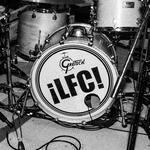
Los Fabulosos Cadillacs
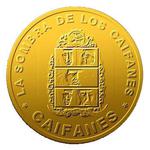
Caifanes
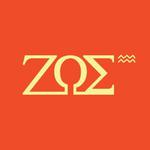
Zoé
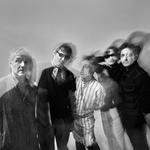
Babasonicos
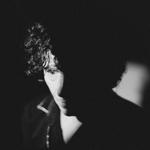
Enrique Bunbury
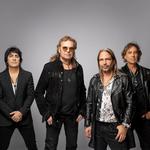
Maná

Fito Páez
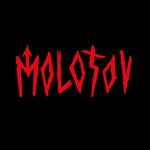
MOLOTOV OFICIAL
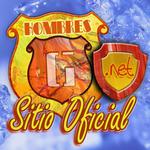
Hombres G
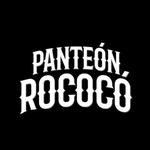
Panteón Rococó

Julieta Venegas
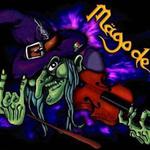
Mägo de Oz
Soda Stereo Tour Cities
Zapopan, Mexico
Mexico City, Mexico
Monterrey, Mexico
Buenos Aires, Argentina
Santiago, Chile
Montevideo, Uruguay
Frequently Asked Questions About Soda Stereo
Concerts & Tour Date Information
Is Soda Stereo on tour?
Yes, Soda Stereo is currently on tour. If you’re interested in attending an upcoming
Soda Stereo concert, make sure to grab your tickets in advance. The Soda Stereo tour
is scheduled for 18 dates across 6 cities. Get
information on all upcoming tour dates and tickets for 2026-2027 with Hypebot.
How many upcoming tour dates is Soda Stereo scheduled to play?
Soda Stereo is scheduled to play 18 shows between 2026-2027. Buy
concert tickets to a nearby show through Hypebot.
When does the Soda Stereo tour start?
Soda Stereo’s tour starts Mar 21, 2026 and ends on Aug 15, 2026.
They will play 6 cities; their most recent concert was held in
Buenos Aires at Movistar Arena and their next upcoming concert
will be in Mexico City at Palacio de los Deportes.